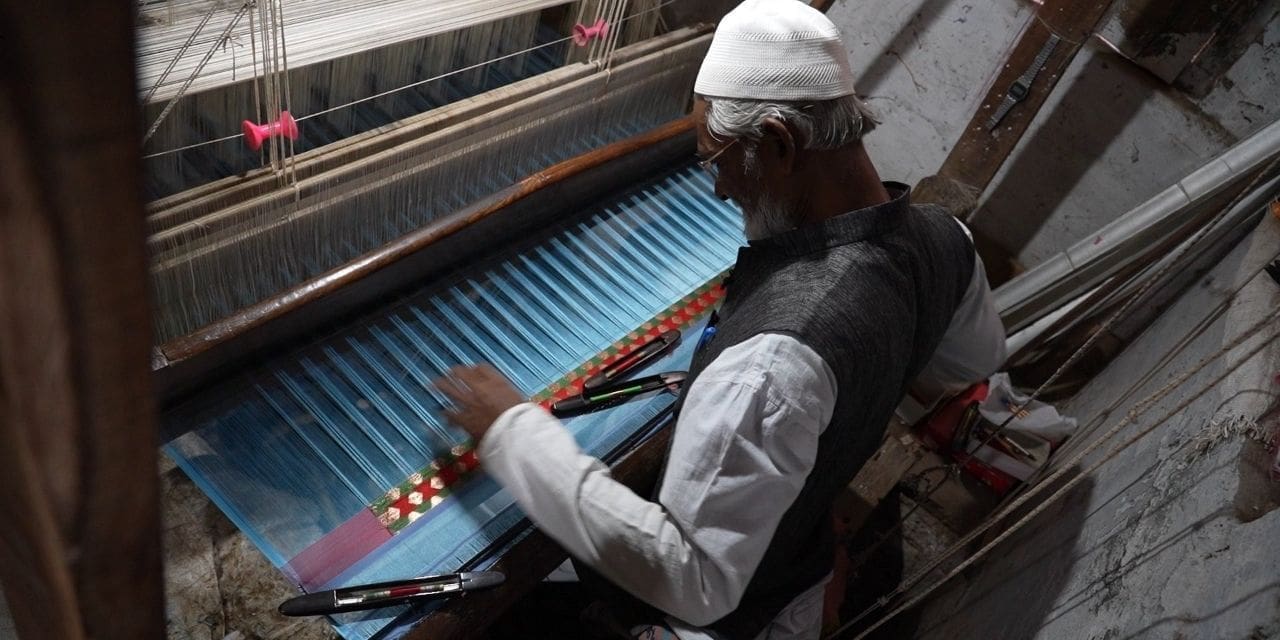The handloom textile business in India has a long and rich history that dates back several centuries. These days, this sector is vital to many communities since it creates jobs and conserves cultural heritage. But with the British era’s advent of mechanical textile manufacture, this once-respected industry has encountered several difficulties. Labor concerns, the competition from synthetic fibers, the limitations of traditional fibers, a lack of investment, sizable unorganized markets that rely on middlemen, and restricted access to both domestic and foreign markets are a few of the major obstacles.
Due to decreased pay and uncertain work, the younger generation of weavers is leaving the sector, which is primarily unorganized, and creating a fall in the weaver community. Additionally, a lot of the handloom sector depends on commodities whose prices can change significantly. Further efforts are required, even though the Indian government has actively supported the business with subsidies and incentives. The Aditya Birla Group – Birla Cellulose, in collaboration with regional partners, has initiated a campaign to raise awareness about natural, sustainable, and long-lasting substitutes by introducing the weaver community to reasonably priced fibers like Excel, Viscose, and Modal.
It’s amazing that Birla Cellulose blended silk fabric retains the opulent feel of pure silk at a fair price, considering that silk yarn is frequently quite expensive and out of the reach of the general population. Products made with a blend of Excel and modal offer a vivid color, a silky feel, and a glossy sheen. The Liva brand by Birla Cellulose supports the Indian textile value chain by aiding in the development of more environmentally friendly fibers that also solve the problems weavers encounter with traditional thread breakage.
Furthermore, with their robust supply chain supported by regional partners, Birla Cellulose ensures the timely and consistent delivery of quality yarn that meets all of their customers’ needs, helping to boost the weavers’ production capacity. As part of this initiative, the Liva team also prepares the handloom weaving community for the future by holding seminars and hub meetings that guide these weavers. This initiative will not only help revive the industry but also assist in its expansion, contributing to the realization of the Make in India vision for the handloom sector.
With its versatile R&D center continuously engaged in developing new yarns and fabrics alongside regional partners, Birla Cellulose has helped commercial bulk fabric manufacturers create new bases for printing with the latest in-demand yarns and innovative weaving patterns. To promote the “Vocal for Local” initiative, the Liva team has assisted printers in connecting with grey base manufacturers to obtain quality fabric at the right price. An ongoing project in Odisha involves supporting weavers in developing Ikat using Excel yarn, which will be dyed with natural organic dyes. Beyond pre-production, they also provide support during post-production, including tagging, online and offline market connections, roadshows, and door-to-door promotions, helping businesses increase inquiry leads.
Birla Cellulose, through its initiative to create awareness of natural, sustainable, and biodegradable yarns, aims to advance its mission of environmental sustainability while supporting the revival of India’s handloom textile industry by encouraging the handloom textile value chain to adopt Birla Cellulose for the greater good!

